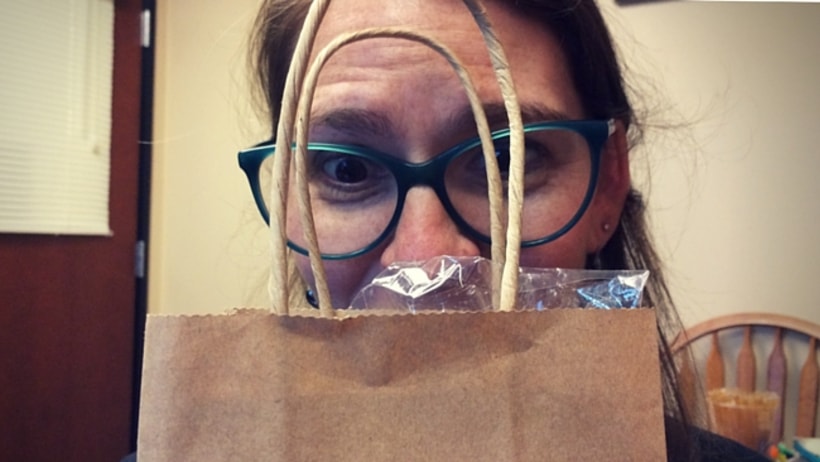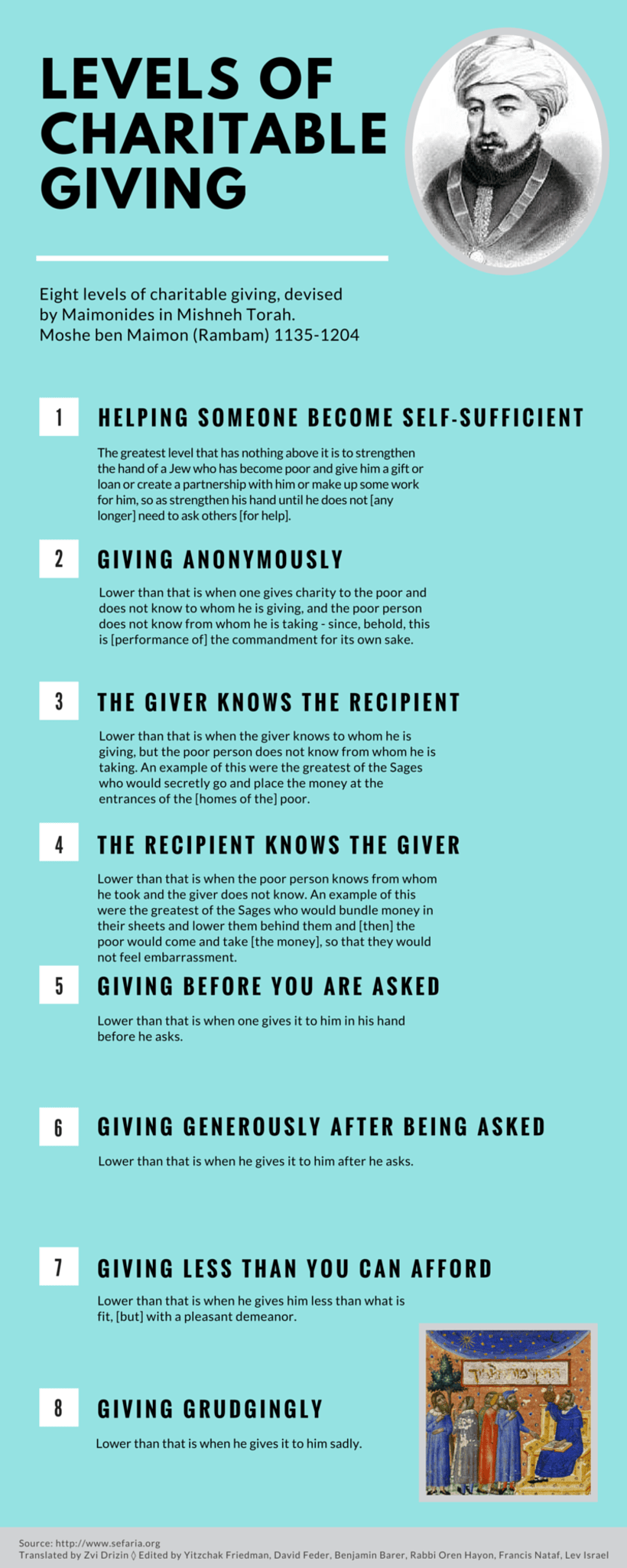Maimonides, our great Jewish legal expert from the 12th century, created a hierarchy of giving. It’s a series of eight levels, the order of which is based on the relationship between giver and recipient, with level one being the purest form of gift from one human to another.

If you’ve heard me tell Shabbat stories, you know I have a few favorites. One of my favorites stands out as a prime example of Maimonides’ second level of giving, in which neither the giver nor the recipient knows the other.
There once was a very generous baker, who found himself with a few extra loaves of challah one particular Shabbat evening. He decided the best solution would be to sneak into the shul, place the extra loaves in the ark, and leave them in God’s hands, hoping something good would transpire. On Shabbat morning, the man found the challah had disappeared. Clearly, God had found a use for them, so he made extra the next week as well. Week after week he did this, and week after week by Shabbat morning, they were gone.
At the same time there was a very poor man in the town who was too embarrassed to ask for help. Week after week he went to shul for Friday night services to pray. For weeks he stood in front of the ark, praying to God that there would be food on his table when he made it home. One week on a whim he opened the ark, hoping to bring himself nearer to the holiness of the word of God. Lo and behold, inside were beautiful challotfor him to bring home. He tried it again the next week, and there they were again. Week after week he prayed, and week after week the scrumptious bread appeared as an answer to his prayers. One Shabbat, the synagogue caretaker caught a glimpse of both men in this weekly routine and orchestrated a meeting between them. They feel foolish at first, but it is the rabbi who convinces the men that they have shared the ultimate gift in this weekly exchange.
I love this story because it exemplifies the pure joy of giving simply to give. This same concept is present in our Torah portion this week, parshat Vayakhel. The narrative continues with the requirement to observe Shabbat and includes the request to bring gifts to build the Mishkan. Following that, Betzalel and Ohilav are appointed as the taskmasters of the construction project, and we hear about the abundance of gifts the Israelites brought to the Tabernacle.
The Torah teaches that the Israelites brought gifts morning after morning. In fact, the word “morning” is repeated, which is interpreted to mean that the people brought their gifts at first light, a time during which individual faces could not yet be distinguished from one another. This suggests that the Israelites were contributing not out of obligation to each other or for any sort of recognition, but out of love for God.
Like both the baker and the recipient of his kindness, the mitzvah of the Israelites and the Mishkan was in the anonymity of the act. Too often in our world we are looking for acknowledgement of the work that we’re doing because it “feels good,” when in fact the good feeling we get should be a side effect of doing the charitable work in the first place.
Below for your reference, I’ve included the full series of giving levels as formulated by Maimonides. Where does your giving to others fall on the spectrum? Perhaps we can all strive to work less for the credit and more in the dim light of morning.

-Rabbi Eve Posen
Source: Gifts Please – Parshat Vayakhel 5776 – Rabbi Eve Posen



